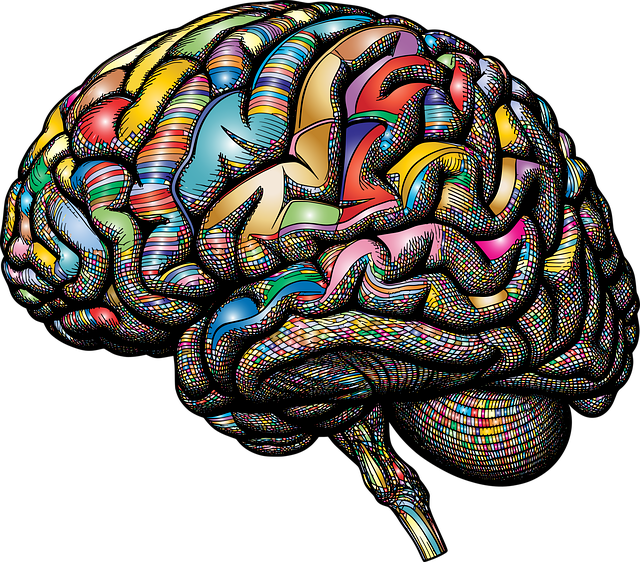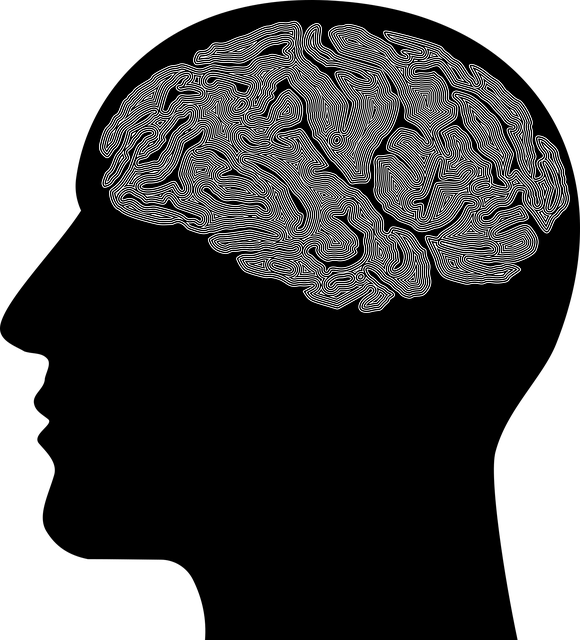The text explores the significant barrier of mental health stigma hindering elderly individuals from seeking help, particularly regarding therapy for elders geriatrics. Societal perceptions and ageism lead to shame and embarrassment, preventing access to essential services tailored to seniors' needs. Effective strategies include promoting mental health awareness among caregivers and the public, challenging stereotypes through accurate information, and providing safe spaces for processing experiences. Tailored educational initiatives, such as cognitive-behavioral therapy adapted for seniors, interactive workshops, and peer support groups, destigmatize mental health support. Training local mental health professionals in risk assessment ensures prompt, non-judgmental care. Breaking down stigma in community centers and senior care facilities empowers caregivers to provide better support, ultimately improving geriatric mental wellness through accessible, tailored therapy.
Mental illness stigma is a significant barrier to elderly mental health, often leading to isolation and untreated conditions. This article explores targeted efforts to reduce this stigma, focusing on strategies that cater specifically to geriatric populations. We delve into the effectiveness of therapy in challenging stigmatization, community engagement initiatives, educational programs, and policy changes advocacy for improved mental wellness among seniors, emphasizing the critical role of therapy for elders and geriatrics.
- Understanding Stigma and its Impact on Elderly Mental Health
- The Role of Therapy in Challenging Stigmatization
- Strategies for Effective Community Engagement
- Educational Initiatives: Breaking Down Barriers
- Policy Changes and Advocacy for Geriatric Mental Wellness
Understanding Stigma and its Impact on Elderly Mental Health

Stigma surrounding mental health issues often presents a significant barrier to elderly individuals seeking help and support for their well-being. This particular demographic faces unique challenges when it comes to addressing mental illness, largely due to societal perceptions and ageist stereotypes. Many older adults internalize these negative views, which can lead to feelings of shame and embarrassment, deterring them from pursuing therapy or engaging in open conversations about their emotional struggles.
The impact of stigma on the mental health of seniors is profound. It may prevent them from accessing essential geriatrics services and specialized therapy tailored for their needs. Effective stigma reduction strategies are crucial to improving mood management and overall well-being in this population. Promoting mental health awareness among caregivers, family members, and the general public can foster better understanding and encourage open dialogue. Communication strategies that challenge stereotypes and provide accurate information about mental illness in older adults are key components in the ongoing efforts to reduce stigma, ensuring that those in need receive the support and care they deserve.
The Role of Therapy in Challenging Stigmatization

Stigma reduction efforts must include a strong focus on therapy as a powerful tool to challenge societal perceptions. Mental health therapy plays a pivotal role in providing elders and geriatrics with a safe space to process their experiences, gain insights, and develop coping strategies. Through psychotherapy, individuals can explore the complex factors contributing to mental illness, including historical or intergenerational trauma, which is often prevalent among older demographics. This therapeutic approach enables them to challenge internalized negative beliefs about themselves and their conditions, fostering self-acceptance and a more nuanced understanding of mental wellness.
Targeting therapy specifically for elders and geriatrics is crucial because ageism intersects with mental health challenges in unique ways. Public awareness campaigns that highlight the importance of early intervention and ongoing support services can significantly contribute to stigma reduction. By integrating trauma support services within these initiatives, we can address the multifaceted nature of mental illness, ensuring that older adults receive holistic care tailored to their needs.
Strategies for Effective Community Engagement

In order to effectively reduce the stigma surrounding mental illness within communities, it is essential to engage with diverse groups in meaningful ways. One successful strategy involves tailoring educational initiatives to specific demographics, such as focusing on geriatrics and older adults through programs that address depression prevention. By presenting evidence-based practices like cognitive-behavioral therapy (CBT) tailored for seniors’ unique needs, communities can destigmatize mental health support while offering practical tools for coping with age-related challenges.
Additionally, incorporating interactive workshops on conflict resolution techniques and peer support groups encourages open dialogue about mental health. These community-based efforts facilitate understanding and empathy by normalizing conversations around emotional well-being. Moreover, training local mental health professionals in risk assessment techniques ensures that individuals in need receive prompt, non-judgmental care, further strengthening the community’s capacity to address mental illness stigma collaboratively.
Educational Initiatives: Breaking Down Barriers

Educational initiatives play a pivotal role in breaking down the barriers associated with mental illness stigma, particularly within geriatric populations. By incorporating mental health education into community centers and senior care facilities, we can initiate meaningful conversations that dispel myths and foster empathy. These efforts aim to normalize discussions around mental well-being, encouraging seniors to openly share their experiences without fear of judgment.
Targeted programs focused on therapy for elders and geriatrics, coupled with public awareness campaigns development, can significantly contribute to trauma support services. Educating caregivers and family members about mood management strategies empowers them to better assist loved ones. This holistic approach ensures that mental health resources are accessible, understandable, and embraced within communities, ultimately leading to reduced stigma and improved overall well-being for seniors struggling with mental illness.
Policy Changes and Advocacy for Geriatric Mental Wellness

The fight against mental illness stigma often overlooks an important demographic: older adults or geriatrics. Policy changes are crucial to advocate for the mental wellness of this age group, as they face unique challenges such as isolation, cognitive decline, and chronic illnesses that can exacerbate existing mental health conditions. Many elderly individuals may not receive the necessary therapy for elders due to lack of access to specialized geriatric mental health services, leaving them struggling without support.
Advocacy efforts should include pushing for improved trauma support services tailored to geriatrics, as many older adults carry unseen emotional scars from past experiences. Increasing awareness about stress management strategies specifically designed for seniors can also make a significant difference in their overall mental wellness. The production of a Mental Wellness Podcast Series dedicated to this topic could further educate the public and reduce stigma, ensuring that older adults receive the help they need and deserve.
Mental illness stigma significantly hinders access to care for elderly individuals, impacting their overall mental well-being. However, through comprehensive approaches including therapy tailored for elders and geriatrics, community engagement strategies, educational initiatives, policy changes, and advocacy, we can foster an environment that embraces and supports mental health awareness among the aging population. By challenging stigmatization at all levels, we enable better access to care, enhance quality of life, and ultimately promote healthier, happier geriatric communities.








